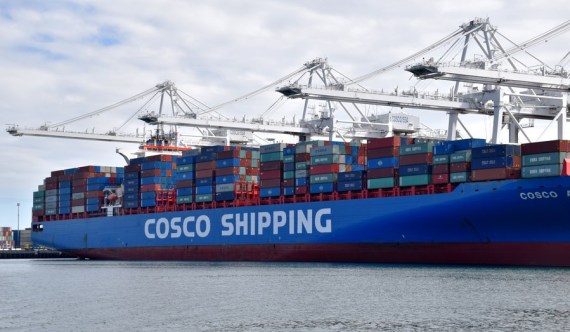By Wong Un I
The completion, in principle, of the negotiations on the China-EU Comprehensive Agreement on Investment (“CAI”), after seven years, and 35 rounds of negotiations, is considered another “major diplomatic victory” for China in 2020, after the conclusion of the Regional Comprehensive Economic Partnership Agreement.

The CAI aims to build a bilateral investment framework between two leading world economies, which is not only a matter of mutual interest, but also a New Year’s gift to a turbulent world.
This agreement will be the most ambitious agreement that China has ever entered into with other partner. Under the CAI, China demonstrates its determination and confidence, not only in promoting a higher level of market access for European investors, but also to foster investment in a manner supporting high levels of environmental and labour rights’ protection.The CAI covers the following four key aspects:
1. Market access and investment liberalisation
It has been generally considered that the European services market is more open and committed in the WTO General Agreement on Trade in Services when compared to China’s. In order to rebalance the current asymmetry in market access conditions, China is making comprehensive commitments in several key areas such as private healthcare, new energy vehicles, computer services, cloud services, financial services and international maritime transport services etcetera. Concerning non-services sectors, China also makes comprehensive commitments in the manufacturing sector, with only very limited exclusions. This may have a significant positive impact in EU countries’ investments in this field, considering that almost half of EU foreign direct investment is currently in this sector. On the other side, the CAI also ensures Chinese companies the same treatment in the European Union. With regard to market access, both parties commit neither to discriminate (ie, not to impose foreign investment bans, joint venture requirement or nationality requirement) nor to impose quantitative restrictions, except for a specific reservation included in the relevant schedule.
2. Level playing field
The agreement will include rules aiming to promote a level playing field between public and private companies without being discriminated in their purchases and sales of goods or services. Rules against forced transfers of technology, transparency in subsidies, and predictability and fairness in authorisations will also be established.
3. Sustainable development
Different from other agreements, the CAI binds both parties into a value-based investment relationship based on sustainable development principles, including commitments not to lower the standards of environmental and labour protection, as well as to effectively implement and work towards the multilateral environmental agreements, including the UN Framework Convention on Climate Change and the Paris Agreement and International Labour Organisation Conventions.
4. Dispute settlement
The CAI also includes an effective, efficient and transparent mechanism for avoiding and settling disputes (state-to-state dispute resolution) and a monitoring mechanism for pre-litigation phase.
This mutually beneficial agreement will benefit not only the European companies with presence in China and Chinese companies already in the EU, but also encourage new FDI inflows and outflows to both markets.
The Portuguese Case
Portugal, with its strategic international relations with Europe, geopolitical position and attractive investment ecosystem, has played an important role as one of the gateways for the entries of Chinese investments into the EU. It is, therefore, not surprising that China’s acquisition waive? and foreign direct investment in Portugal has risen since 2011 and that numerous synergies between the two economies have developed since then. In that sense, the relationship between China and Portugal has been exemplary and based on mutual respect. This strategic partnership, which is a century’s old alliance and has Macau at its core, will now play a pivotal role in the future of the CAI, with Portugal presiding over the Council of the European Union during the first semester of this year.
The willingness of both China and Portugal to promote the implementation of the CAI is manifest. Ambassador Zhang Ming, Head of Chinese Mission to the EU, spoke at a press conference in Brussels that “we hope that Portugal, which is taking over the rotating presidency of the EU, can speed up the process so that we can sign the preliminary documents in the first half of this year.” On the other side, the Portuguese Prime Minister António Costa affirmed that the agreement in principle on investment reached between the EU and China last week was “in the interest of European” and should be “approved as soon as possible”.
Although it remains to be seen how the CAI will interact with the recent European tightening of the foreign investment control regime, this agreement will open up a wide range of investment opportunities for China and the EU. The CAI will no doubt bring the China-EU economic and trade cooperation to a new level and, more importantly, it will transmit positive signs to the global economic recovery and illustrate the importance of an open international trade and investment environment.
China and EU are now working towards finalising the text of the CAI, which will need to be submitted for approval by the Parliaments of both Parties. If successful, the CAI may re-shape the economic relations between China and EU and, in the process, bring the relationship between China and Portugal to a higher level.
























